
 By Aidan Butler
By Aidan Butler Healthcare CRM Software Development: The Role of AI and Machine Learning
In recent years, the healthcare industry in the USA has been undergoing a significant digital transformation. This shift is reshaping how healthcare providers deliver patient care and manage their operations. Central to this transformation is Customer Relationship Management (CRM) Software Development, which has become an indispensable tool for enhancing patient care and operational efficiency.
Enter Artificial Intelligence (AI) and Machine Learning (ML) – the new frontier in healthcare technology. These advanced technologies are revolutionizing Healthcare CRM Software systems, enabling more personalized patient experiences, streamlining workflows, and improving overall patient engagement and satisfaction.
The Evolution of Healthcare CRM
The journey of CRM Software Development in healthcare began with manual systems, where patient information was recorded on paper and managed manually. There was a lot of confusion and errors associated with these systems. The advent of digital Healthcare CRM Software marked a significant improvement, automating many processes and making patient data more accessible. However, traditional CRM systems had limitations in a data-driven world, often struggling to handle the vast amounts of data generated in modern healthcare settings.
Introducing AI-enhanced Medical CRM Software is a paradigm shift. Using these advanced systems, massive amounts of data can be analyzed, patterns identified, and actionable insights provided in real-time. This evolution from manual to automated, and now to AI-driven CRM, has transformed the way healthcare providers interact with patients and manage their operations.
Understanding AI and Machine Learning
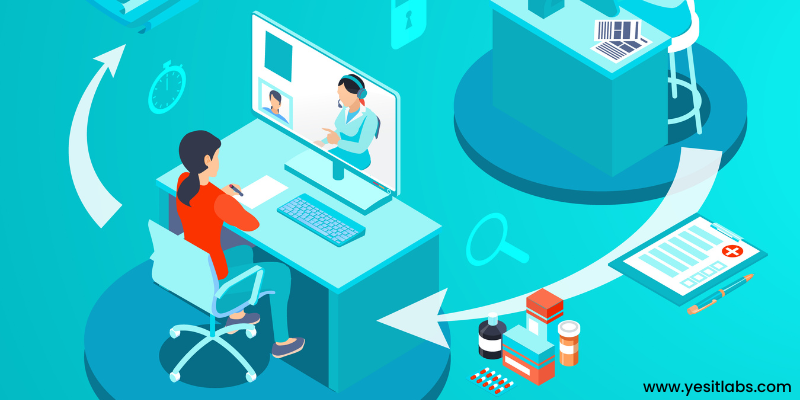
Despite the idea of artificial intelligence sounding futuristic, we already use it every day. In simple terms, AI refers to the ability of a computer system to perform tasks that normally require human intelligence. This includes recognizing speech, making decisions, and even identifying patterns in data.
Machine Learning, a subset of AI, is like the engine that powers AI. It involves training algorithms on large datasets so they can learn to make predictions or decisions without being explicitly programmed to perform those tasks. In healthcare, ML algorithms can analyze patient data to predict health trends, identify potential issues, and recommend personalized treatment plans.
Together, AI and ML create a powerful synergy that can process and analyze healthcare data with unprecedented speed and accuracy, leading to improved patient outcomes and operational efficiency.
Key Benefits of AI-Driven Healthcare CRM Software
Personalization at Scale
One of the most significant benefits of AI-driven Healthcare CRM Software is its ability to personalize patient experiences on a large scale. Using predictive analytics, these systems can tailor treatment plans, appointment schedules, and even communication methods to each patient’s unique needs and preferences. Patients are more likely to comply with treatment plans when they receive this level of personalization.
Operational Excellence
AI streamlines workflows by automating routine tasks, such as appointment scheduling, billing, and follow-up communications. This automation not only reduces the administrative burden on healthcare providers but also cuts costs and minimizes the risk of human error. As a result, healthcare organizations can operate more efficiently and focus more on patient management.
Engagement and Satisfaction
Intelligent CRM tools enhance patient engagement by providing timely and relevant information. For example, AI-driven systems can send personalized reminders for appointments and medication refills, offer virtual assistance through chatbots, and provide 24/7 support. These features help keep patients informed and engaged, leading to better health outcomes and higher satisfaction levels.
Deep Dive: AI and ML Features in Healthcare CRM
Data Analysis and Pattern Recognition
AI-driven CRM systems excel at analyzing large datasets and recognizing patterns. This capability allows healthcare providers to predict patient needs and identify potential health issues before they become serious. For instance, an AI system can analyze a patient’s medical history and lifestyle factors to predict the likelihood of developing certain conditions, enabling proactive intervention.
Chatbots and Virtual Assistants
Patient support is being transformed by chatbots and virtual assistants that provide instant, 24/7 assistance. These tools can answer common questions, help schedule appointments, and provide information about medications and treatments. By handling routine inquiries, chatbots free up healthcare staff to focus on more complex tasks, improving overall efficiency and patient satisfaction.
Automated Reminders and Follow-Ups
Automated reminders for appointments, medication refills, and follow-up visits help ensure patients adhere to their treatment plans. These reminders can be personalized based on the patient’s preferences, whether through text messages, emails, or phone calls. By enhancing adherence, automated reminders contribute to better health outcomes and reduce the likelihood of hospital readmissions.
Case Studies: Success Stories from the USA
Several healthcare organizations in the USA have successfully implemented AI-driven Medical CRM Software systems with impressive results. For example, a large hospital network used AI to analyze patient data and identify those at high risk of readmission. By providing targeted interventions, the hospital significantly reduced readmission rates and improved patient care.
Another case involves a clinic that implemented AI-powered chatbots to handle patient inquiries and appointment scheduling. The chatbots reduced the workload on administrative staff, allowing them to focus on more critical tasks, and improved patient satisfaction by providing quick and accurate responses.
Overcoming Challenges
Navigating Privacy Laws and Regulations
One of the biggest challenges in implementing AI-driven Healthcare CRM Software systems is navigating the complex landscape of privacy laws and regulations in the USA. Healthcare providers must ensure that their systems comply with regulations such as the Health Insurance Portability and Accountability Act (HIPAA) to protect patient data.
Ensuring Data Security
Data security is another critical concern. AI-powered systems handle vast amounts of sensitive patient data, making them a prime target for cyberattacks. Secure patient information can be ensured by implementing strong security measures, including encryption and access controls.
Addressing the Digital Divide
While AI-driven CRM systems offer many benefits, it’s essential to ensure that these technologies are accessible to all patients, including those who may not be tech-savvy or have access to the latest devices. Healthcare providers must find ways to bridge the digital divide and make these advanced tools user-friendly for everyone.
Looking Ahead: The Future Landscape of Healthcare CRM
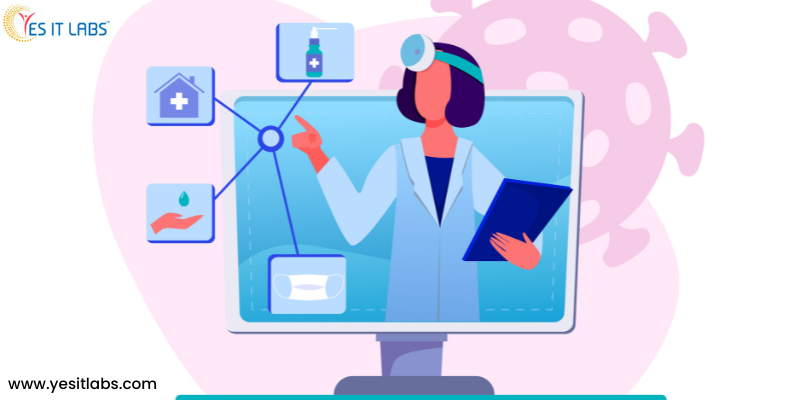
The future of Healthcare CRM Software looks promising, with several exciting innovations on the horizon. We can expect to see even more advanced AI and ML capabilities, such as predictive analytics that can anticipate health issues before they arise and personalized treatment plans tailored to each patient’s genetic makeup.
Healthcare providers must prepare for these changes by staying informed about emerging technologies and investing in staff training to ensure they can effectively use these tools. Embracing AI-driven CRM is essential for staying competitive in the rapidly evolving healthcare landscape and delivering the highest quality care to patients.
Conclusion
AI and ML are transforming CRM Software Development, offering unprecedented opportunities to enhance patient care, streamline operations, and improve patient engagement. By adopting these advanced technologies, healthcare providers can deliver more personalized and efficient care, ultimately leading to better health outcomes and higher patient satisfaction. Embracing AI-driven CRM is not just a trend but a necessity for the future success of healthcare in the USA.
For healthcare organizations looking to stay ahead, partnering with a Healthcare Software Development Company specializing in custom software development can be a game-changer. Such partnerships ensure that the software development company understands the unique needs of the healthcare industry and can deliver tailored solutions that drive success in this ever-evolving field.
Tags: CRM Software Development, Custom Software Development, Healthcare CRM Software, Healthcare Software Development Company, Medical CRM Software, Patient Management, software development companyLatest Resources
Top Frameworks for Cross-Platform App Development in 2025
January 22, 2025
A Guide to Types of Artificial Intelligence (AI)
January 14, 2025
Key Benefits of React Native App Development
January 7, 2025
Leveraging AI in Startup Software Development: Trends and Tips
December 30, 2024
Mobile Optimization for Shopify Apps: Best Practices
December 23, 2024
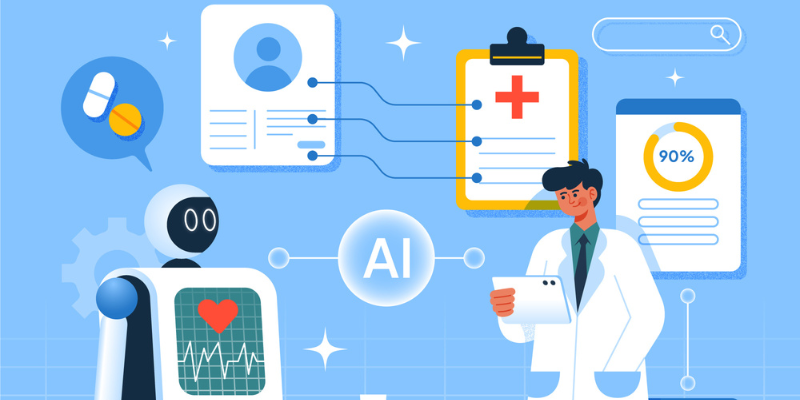
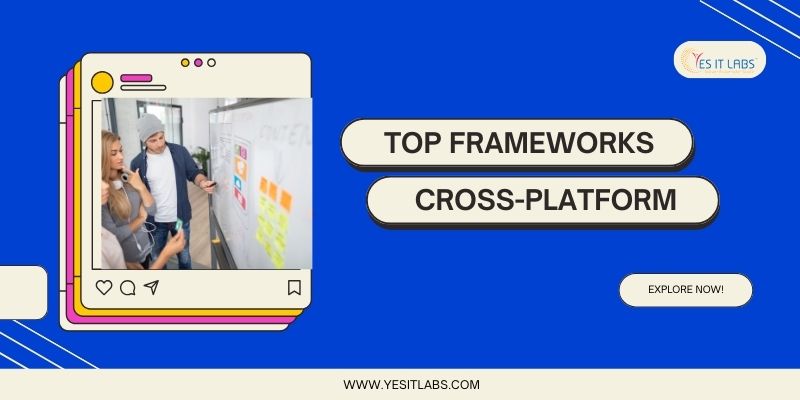


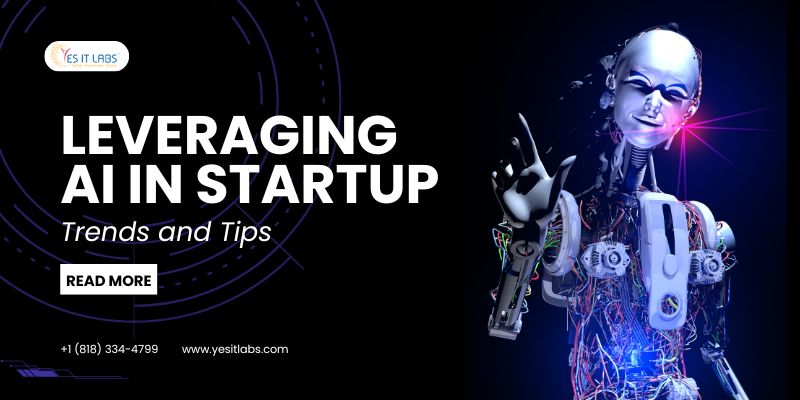
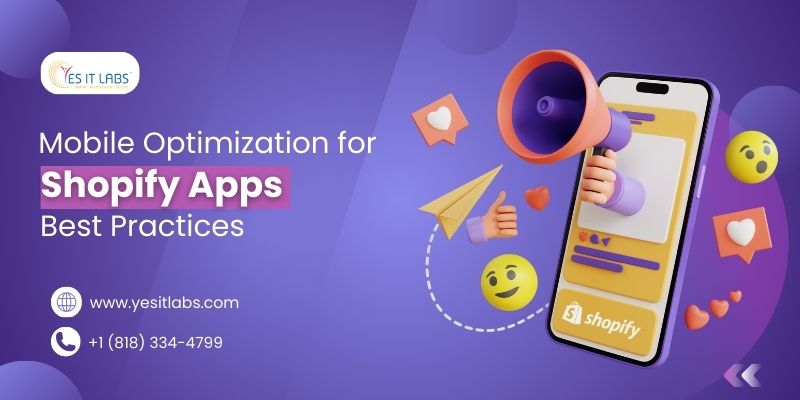






 Services
Services

